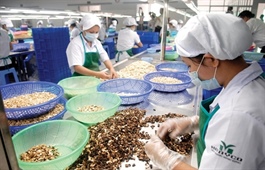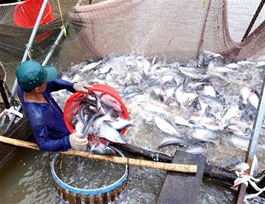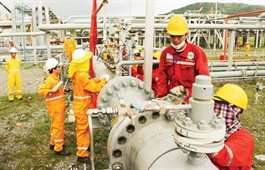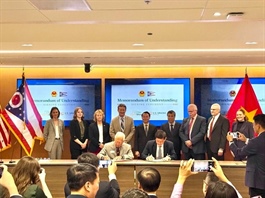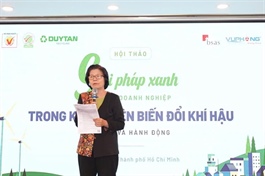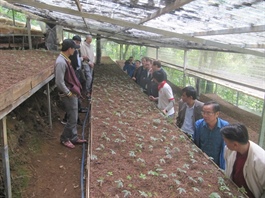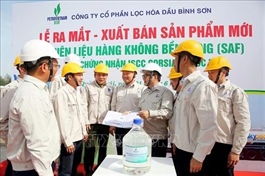Rule changes to prevent future food safety violations
Rule changes to prevent future food safety violations
The Investigation Police Department of the Ministry of Public Security has dismantled a number of fake food production and trading cases in recent times, including those involving milk and health protection foods. As the standing agency of the central inter-sectoral steering committee on food safety, we have been closely coordinating with the ministry to make final assessments and conclusions on these cases.
We find such cases serious and hope that organisations and individuals with unethical business practices will change their behaviour after these busts. This is also a wake-up call for those who are manufacturing and trading in counterfeit goods.

Tran Viet Nga, director, Vietnam Food Safety Authority, Ministry of Health |
Counterfeit food and goods in general does not only exist in Vietnam. The production of fake food causes damages in the form of tens of billions of Euros to the European community each year. Independent experts also estimate that the global food industry suffers losses of about $40 billion due to fake food.
In Vietnam, this situation is partly due to shortcomings in the management mechanism. Decree No.15/2018/ND-CP stipulated the mechanism for self-declaration of products, creating improvements for enterprises to self-declare and take responsibility for the quality and safety of their products. However, some enterprises have taken advantages of this policy to carry out illegal business.
With the self-declaration mechanism, enterprises can self-declare and produce immediately without having the state management agency review their documents. Many enterprises self-declared medical nutritional products or products for special diets, especially food supplements. This is a law-evading behaviour that deserves condemnation.
In addition, the self-declaration procedure is simple and free. Therefore, many businesses rushed to self-declare their products, but actual production and business quantity did not match the declared quantity, causing difficulties for state management agencies in inspection and post-audit.
When empowering businesses, their responsibility must be the highest, and they must strictly comply with legal documents issued by the management agency. In food safety, we have a relatively complete system of legal documents, including the Food Safety Law, Decree 15, and technical regulations of ministries and agencies.
For counterfeit goods, Decree No.98/2020/ND-CP also clearly regulates counterfeit goods and sanctions. The Penal Code also has separate provisions on criminal handling of counterfeit food. If businesses comply with these regulations, there will be no major problems.
However, many businesses deliberately made mistakes, producing counterfeit goods for profit, regardless of business ethics.
On the management side, we also face difficulties due to intentional violations of businesses, and the large number of declared products. Any business with a business registration can declare food products. Meanwhile, the post-auditing force is limited, and post-auditing work includes many activities such as checking records, checking production facilities, taking product samples on the market or at production facilities for testing. Also, the cost of testing is quite high, causing difficulties for localities.
To address this issue, the government is amending the Food Safety Law. We have advised the Ministry of Health to submit to the government the amendments to Decree 15 and legal documents towards tightening management and overcoming current shortcomings. We also recommend that the people’s committees of provinces and cities increase investment in human resources and funding for post-inspection work.
To ensure that people have access to safe and quality products, there needs to be coordinated efforts from many sides. First of all, production facilities must prioritise business ethics and strictly comply with all legal regulations on food production and trading. Business honesty and responsibility are the most important foundations for building consumer trust.
Secondly, the role of state management agencies is indispensable. The timely and complete issuance of legal documents, along with effective tools to strictly control products in the market, is a key factor in preventing counterfeit and poor quality goods. Inspection, examination and handling of violations must be carried out strictly and regularly.
Thirdly, each person also needs to equip themselves with necessary knowledge to be able to choose food wisely. Learning about product information, origins, ingredients, labels, as well as updating warnings from authorities, will help consumers make wise decisions, protecting the health of themselves and their families.
- 15:01 06/06/2025







